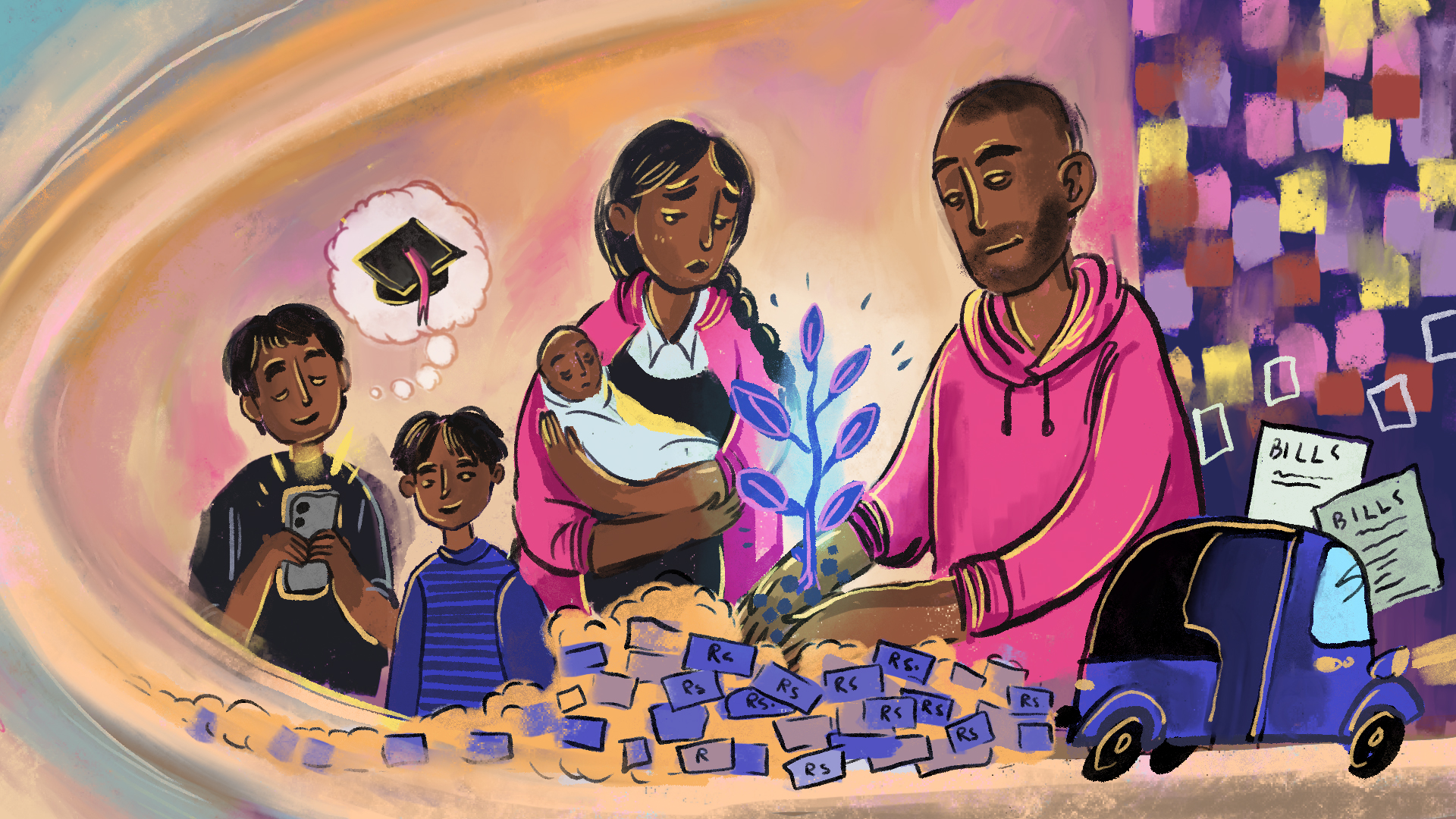The impact of crises on education and lower-income families in Nuwara Eliya
Surviving against the odds
August 31, 2023

In the small town of Kikiliyamanne, nestled within the Labukelle, Nuwara Eliya, area of Sri Lanka, a family of five battles against the overwhelming challenges brought forth by a series of crises. K.D. Shiromi, a 31-year-old woman, resides with her husband and their three children. For Shiromi and her family, life has been a constant struggle, exacerbated by periods of instability brought on by the COVID-19 pandemic and the persistent poly-crisis gripping the nation.
Originally from Ratnapura, Shiromi has called Labukelle her home for the past 14 years since her marriage. Her husband has worked as a three-wheel driver for many years; however, the once-reliable source of income is now plagued with numerous problems, leaving the family in financial jeopardy.
Shiromi herself has had her share of struggles, having worked as an estate worker for several years. However, after the birth of their youngest child, she sought alternative employment at a local daycare centre to ensure her son's well-being while earning an income, bringing home some much-needed money. Nonetheless, the income from the daycare is limited, with Shiromi barely earning Rs. 30,000 per month, working tirelessly without sick leave and juggling her responsibilities as a mother. To compound matters, a portion of her earnings is deducted in EPF/ETF, making it even more difficult to make ends meet. Shiromi is eagerly awaiting her youngest child to grow older so she can return to working on the estate and augment the family's income.
In an area where job opportunities are scarce, Shiromi's husband - the primary breadwinner for the family - earns a meagre Rs. 1,000 per day in his three-wheel hires. The income they receive is solely dedicated to sustaining their household and ensuring their children's well-being.
Shiromi's educational aspirations were cut short due to her own family's financial difficulties. Despite studying until her O Levels, she had to abandon her education as she was the oldest in her family. She briefly worked at a garment factory in Kottawa, Colombo, before getting married. Determined to provide her own children with a complete education unlike her own truncated experience, she views education as a beacon of hope for their future.
The onset of the COVID-19 pandemic further exacerbated the family's hardships. School closures forced the couple to become makeshift educators, a daunting task for parents already burdened by financial constraints. The transition to digital learning presented an initial obstacle, as the family lacked access to the internet and smart devices. Recognising the importance of education, Shiromi's husband refinanced his three-wheeler to purchase a smartphone, ensuring their children wouldn't be left behind. However, the disruptions caused by the pandemic resulted in a halt in Shiromi's work pre-Covid, further reducing their already strained income.
Compounding their challenges, inflation has soared, making it increasingly difficult for the family to sustain themselves. With rising prices and a lack of government support, Shiromi's husband remains resolute in maintaining their independence, distrustful of a system that has failed them in the past. Yet, with the birth of their youngest child, they receive some support through the Sarvodaya programme, a community-based entity that provides them with Rs. 5,000 per month for six months. However, their most significant hurdle remains ensuring their children's financial needs are met, particularly in regard to education. Even affording school items, such as their older son's jersey priced at Rs. 2,800, is reflective of their circumstances - living hand-to-mouth.
Despite the overwhelming odds, the family exhibits remarkable resilience and resourcefulness. Shiromi's husband, in a bid to diversify their income, has begun selling Pepino fruit seeds (gas komadu; tree melon). This entrepreneurial spirit highlights the untapped potential that exists within lower-income communities if provided with opportunities to thrive.
Ultimately, Shiromi and her husband yearn for a better future for their children and all of Sri Lanka's youth. They hope for an upliftment of lives, where individuals can live with a semblance of dignity. The impact of COVID-19 and the ongoing poly-crisis has been devastating, particularly for those in lower-income brackets, as it hinders an environment where every child can access quality education and families are given the means to secure a better future.
*Names have been changed to protect the identity of the individual. This interview was conducted in June 2023 and the individual was a respondent of the National Citizen Survey 2022-3.

 Locations
Locations